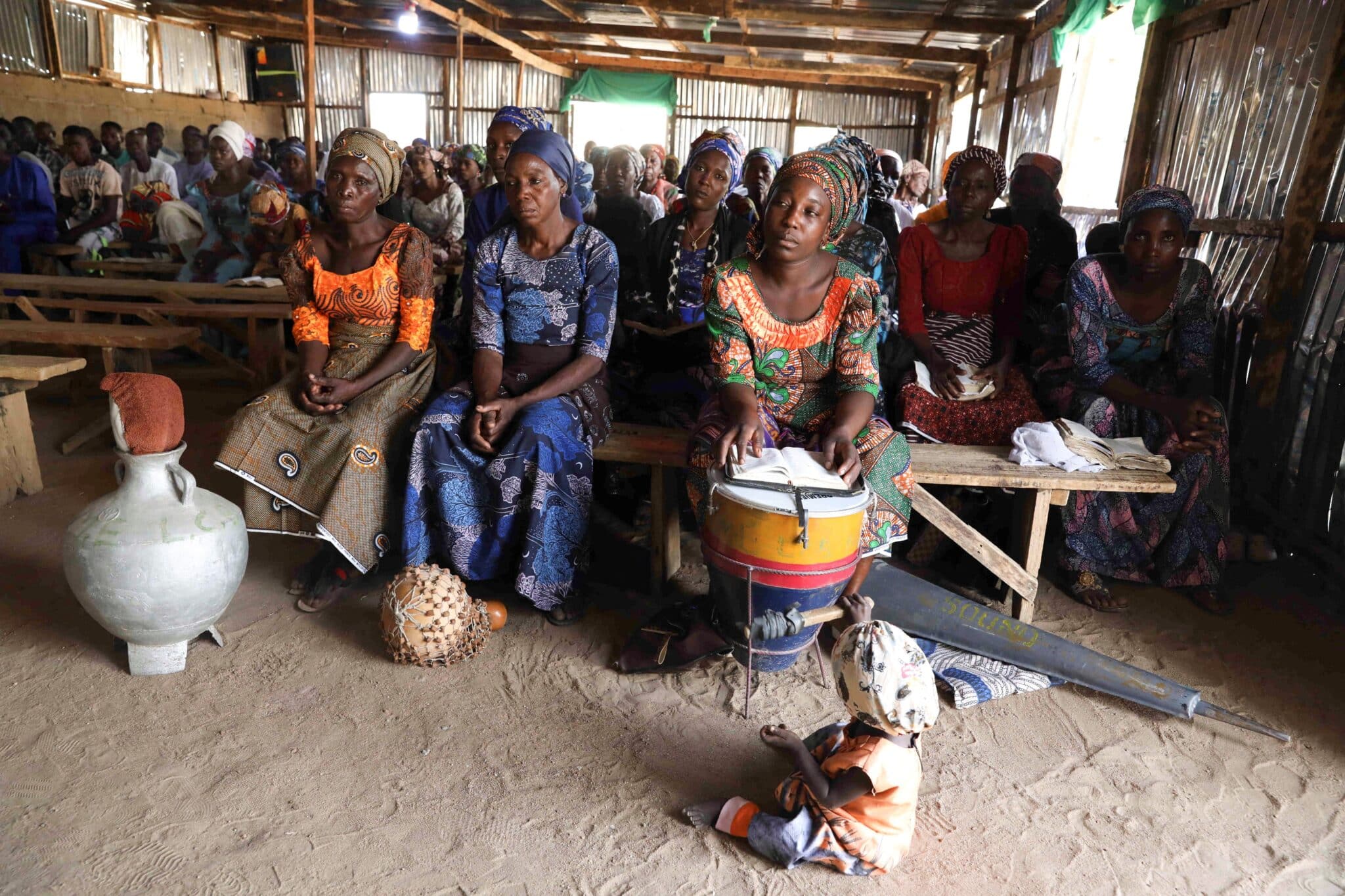His words about marriage have been welcomed by many but not by everyone. Conscience is the key.
Family life is experiencing stress around the world. Because Pope Francis has made families a priority in his papal ministry, the 2014 and 2015 sessions of the World Synod of Bishops, representing all the world’s bishops, focused on a single topic: marriage and family life.
Of all the papal teachings since the conclusion of Vatican II, “The Joy of Love” (“Amoris Laetitia”) apostolic exhortation, signed on March 16, 2016, may be the most controversial in part because it refers to conscience 10 times, and also recommends careful accompaniment and discernment by pastoral workers for couples in marriages not officially recognized by the Catholic Church. That’s not what people are used to hearing from recent popes.
This document covers the entire range of issues related to marriage. The suggestion that a formal decree of nullity by a diocesan tribunal may not be absolutely necessary for readmission to holy Communion for divorced and civilly remarried Catholics, however, has attracted the most attention.
Fruit of Several Years of Work
Each synod meeting (October 5-19, 2014, and October 4-25, 2015) was preceded by a questionnaire to episcopal conferences and offices of the Holy See. National and international groups of Catholics and individuals also sent responses incorporated into separate working documents for each meeting. The contributions to marriage of single life and consecrated life are duly noted. Almost 25 married couples were official observers and participants in the language-group meetings. Several of them spoke to the entire assembly. Dioceses were encouraged to publish the two questionnaires; many pastoral councils and other groups offered input.
The 2015 meeting’s final report contained 94 recommendations approved by two-thirds or more of the 265 voting members. Most of the participants at the 2015 meeting had attended the 2014 one, as well.
What It Says
This document’s style is both conversational and serious. The pope has encouraged a careful and patient reading of the text.
In section 3, Pope Francis writes: “Not all discussions of doctrinal, moral, or pastoral issues need to be settled by interventions of the magisterium. Unity of teaching and practice is certainly necessary in the Church, but this does not preclude various ways of interpreting some aspects of that teaching or drawing certain consequences from it. . . . Each country or region, moreover, can seek solutions better suited to its culture and sensitive to its traditions and local needs.”
“We also find it hard,” explains the pope, “to make room for the consciences of the faithful, who very often respond as best they can to the Gospel amid their limitations, and are capable of carrying out their own discernment in complex situations. We have been called to form consciences, not to replace them” (37).
“Many people feel,” writes the pope, “that the Church’s message on marriage and the family does not clearly reflect the preaching and attitudes of Jesus, who set forth a demanding ideal yet never failed to show compassion and closeness to the frailty of individuals like the Samaritan woman or the woman caught in adultery” (38).
Pope Francis quotes regularly from previous papal teachings, including several of his Wednesday general audiences. He also refers to the 1987 movie Babette’s Feast, a 1957 sermon from Martin Luther King Jr., and the writings of Fyodor Dostoyevsky and several contemporary authors.
The pope notes that marriage “is the icon of God’s love for us. Indeed, God is also communion: the three Persons of Father, the Son, and the Holy Spirit live eternally in perfect unity” (121). God’s grace enables unity between spouses. “Each [one] must set aside all illusions and accept the other as he or she actually is: an unfinished product, needing to grow, a work in progress” (218). According to Pope Francis, “Communication is an art learned in moments of peace to be practiced in moments of difficulty” (234).
The final reports of each synod session are cited frequently; teachings from episcopal conferences in Spain, Korea, Mexico, Colombia, Chile, Australia, Italy, and Kenya are quoted in sections 32, 42, 51, 57, 135, 172, 207, and 215, respectively. This is a noteworthy affirmation of how bishops can teach on a national level.
Among the global issues addressed in this document are extreme individualism, polygamy, dire poverty, obstacles to migration, cohabitation, and domestic violence. All of these seriously impact family life today.
Holy Communion and a Challenge from Four Cardinals
The Catholic Church describes Catholics who divorce and then enter a second marriage not recognized by the Church as living in an “irregular ” marriage and thus not able to receive Communion at Mass. Pope Francis encourages them to request a declaration of nullity with regard to the first marriage, a determination that no sacramental marriage existed between this man and woman.
“It is important,” the pope writes, “that the divorced who have entered a new union should be made to feel part of the Church. ‘They are not excommunicated,’ and they should not be treated as such, since they remain part of the ecclesial community” (243, quoting his general audience talk on August 5, 2015).
“No one can be condemned forever, because that is not the logic of the Gospel! Here I am not speaking only of the divorced and remarried, but of everyone, in whatever situation they find themselves” (297). To place “The Joy of Love” in context, Pope Francis writes: “If we consider the immense variety of concrete situations such as these I have mentioned, it is understandable that neither the Synod nor this Exhortation could be expected to provide a new set of general rules, canonical in nature and applicable to all cases.
What is possible is simply a renewed encouragement to undertake a responsible personal and pastoral discernment of particular cases, one which would recognize that, since ‘the degree of responsibility is not equal in all cases,’ the consequences or effects of a rule need not necessarily always be the same” (300, citing section 84 of the 2015 final report).
Later he explains: “For an adequate understanding of the possibility and need of special discernment in certain ‘irregular’ situations, one thing must always be taken into account, lest anyone think that the demands of the Gospel are in any way being compromised. The Church possesses a solid body of reflection concerning mitigating factors and situations. Hence it can no longer simply be said that all those in any ‘irregular’ situation are living in a state of mortal sin and are deprived of sanctifying grace” (301).
Such teaching is music to the ears of many Catholics; others hear in it a betrayal of fundamental Church teachings.
Four cardinals wrote to the pope last September, asking for a clarification of five doubts they said “The Joy of Love” raises. When their private letter had not received a response, they published its text two months later.
Cardinal Raymond Burke, one of the authors of the letter, said in an interview published in November 2016 that if the pope did not offer the requested clarification, the next step would be to make “a formal act of correction of a serious error” (in effect, an accusation of heresy). The other signers include Cardinals Carlo Caffarra (retired, Bologna), Joachim Meisner (retired, Cologne), and Walter Brandmaller (former president of the Pontifical Commission for Historical Sciences).
The Way Ahead
Pope Francis has chosen not to respond directly to the cardinals’ letter. David Gibson reported for Religion News Service that in a November interview with Avvenire, the newspaper published by the Italian episcopal conference, Pope Francis said that certain individuals view the faith through the lens of “a certain legalism, which can be ideological. Some people, I am thinking of certain responses to “Amoris Laetitia” [“The Joy of Love”], continue to misunderstand. It’s either black or white [to them], even if in the flow of life you have to discern.”
On December 22, the pope spoke to members of the Roman Curia about the principles underlying its reform and steps already taken. He identified three types of resistance: open, hidden, and malicious. He described the third type as springing up “in misguided minds and [coming] to the fore when the devil inspires ill intentions (often cloaked in sheep’s clothing).
This last kind of resistance hides behind words of self-justification and, often, accusation; it takes refuge in traditions, appearances, formalities, in the familiar, or else in a desire to make everything personal, failing to distinguish between the act, the actor, and the action.”
Cardinal Gerhard Müller, head of the Congregation for the Doctrine of the Faith, said in an interview with the TV station Tgcom 24 on January 8: “‘Amoris Laetitia‘ is very clear in its doctrine, and we can read into it all of Jesus’ doctrine on marriage, all the doctrine of the Church in its 2,000-year history.” He said the pope is asking the Church at large “to discern the situation of persons who live in an irregular union . . . and to help these people find a way for a new integration in the Church according to the conditions for the sacraments.” Regarding the four cardinals’ letter, he said, “A correction of the pope is not possible at this time because there is no danger to the faith.”
On February 14, the Vatican publishing house released a short booklet, “The Eighth Chapter of the Post-Synodal Exhortation ‘Amoris Laetitia,'” written by Cardinal Francesco Coccopalmerio, president of the Pontifical Council for Legislative Texts. Catholic News Service reported that the cardinal writes that provisions in “The Joy of Love” allow people in irregular marriage situations access to the sacraments only if they recognize their situation is sinful and they desire to change it.
The fact that such a couple also believes changing the situation immediately by splitting up would cause more harm and forgoing sexual relations would threaten their current relationship does not rule out the possibility of receiving sacramental absolution and Communion.
Cardinal Kevin Farrell, head of the Holy See’s new Dicastery for Laity, Family, and Life, has said that “The Joy of Love” will be the basis of his office’s work. Between 2007 and 2016, he was the bishop of Dallas, Texas.
The process of accompaniment and discernment will continue for the entire Church: married couples, single people, members of religious communities, and clergy. “The Joy of Love” has only begun to bear its fruit.
Sidebar: A Broader Document
The discussion of marriage annulments has been in the news. “The Joy of Love,” however, is a much broader document, as you can see from the chapter headings:
1. In the Light of the Word
2. The Experiences and Challenges of Families
3. Looking to Jesus: The Vocation of the Family
4. Love in Marriage
5. Love Made Fruitful
6. Some Pastoral Perspectives
7. Toward a Better Education of Children
8. Accompanying, Discerning, and Integrating Weakness
9. The Spirituality of Marriage and Family Life








